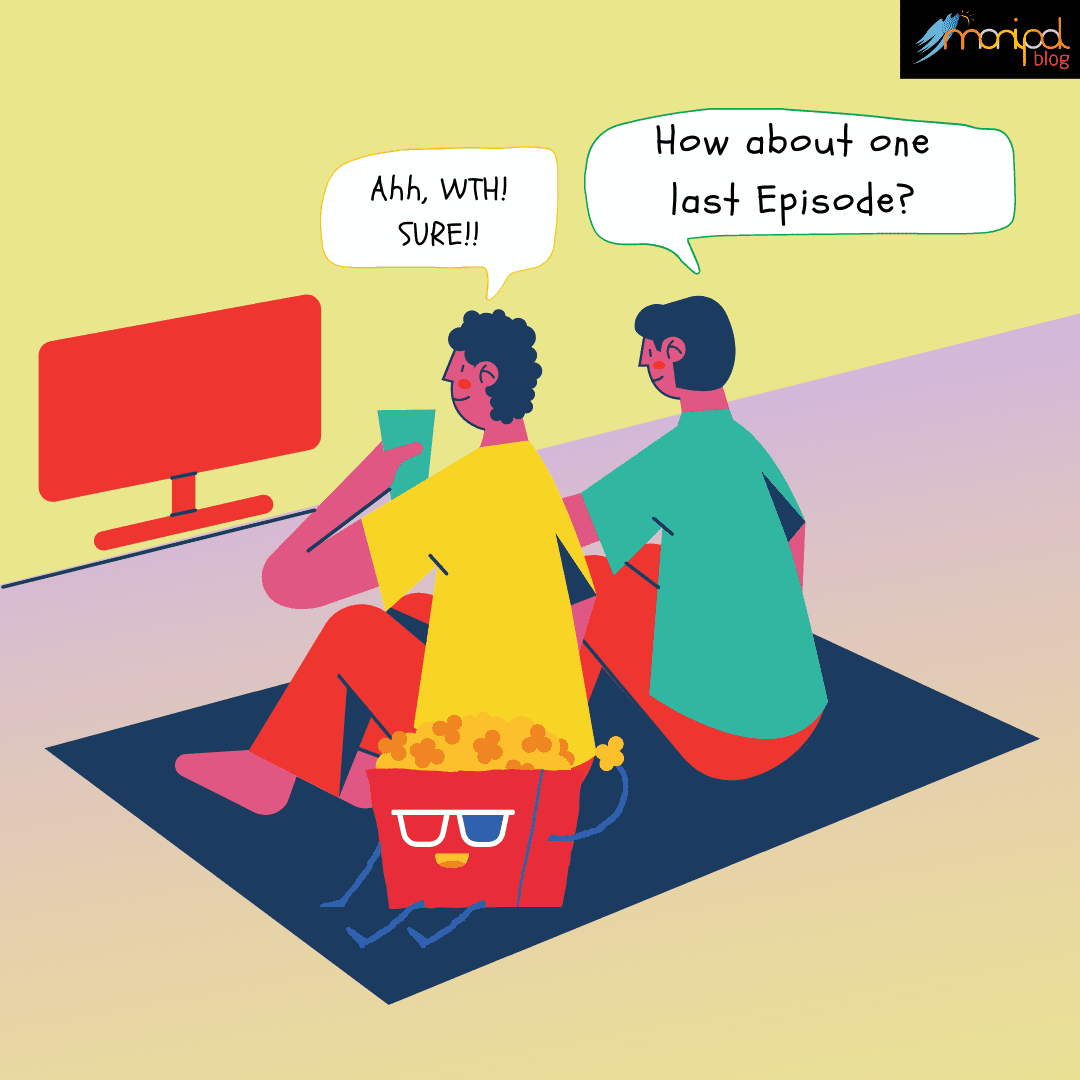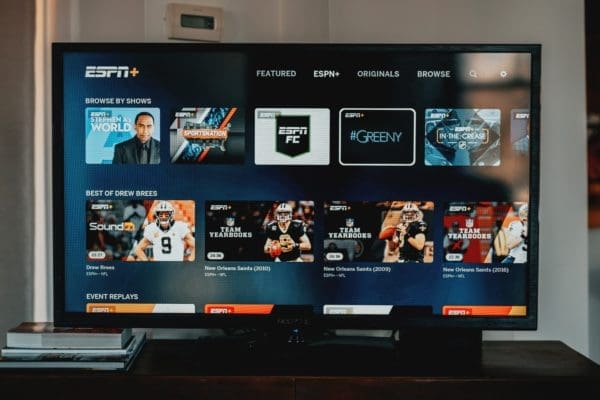
What is Binge-Watching?
It is the practice of watching entertainment or informational content for a prolonged time, usually a single television show. It involves watching many consecutive episodes of the same TV show in one sitting on a screen – be it a television, laptop, computer, or tablet. Most people describe it as “watching between 2-6 episodes of the same TV show in one sitting.” It is an activity prevalent amongst young adults in today’s world.
Why Watch Later When You Can Watch Everything Now?
Some media scholars say that the rapid adoption of binge-watching by audiences worldwide transformed the television and video entertainment industries. It triggered structural changes in how video content was produced, created, and distributed.
As the market grew, some streaming services became content producers. They have adopted production and distribution practices that actively encourage binge-watching as a mode of consumption. These are:
- developing plotlines that cover many episodes or an entire season.
- ending episodes in cliffhangers.
- continuous playing at the end of an episode to the next one.
- releasing a show’s entire season at once – typically on Fridays.

Why do People Binge-Watch in a Go, When There’s No Hurry?
- Two-thirds of people think there is simply too much good TV to watch. 79% of viewers say binge-watching makes the actual show better.
- The engagement was shown to be the strongest motivator for binge-watching. Binge-watching was considered a more enjoyable, entertaining, and engaging way to watch TV.
- Bingeable shows often have a complex narrative structure that drives viewers to become engrossed in the story.
- Viewers also binge-watch for an active and improved viewing experience when there’s enhanced variety and quality of content out there.
Is Heavy Binge-Watching Socially Motivated?
The answer is yes. A survey conducted amongst US college students reported that heavy binge-watchers were likely to be more opinionated and to experience fear of missing out (FOMO) than regular binge-watchers or non-binge-watchers. They also reported higher levels of parasocial engagement with the TV shows’ characters than other viewers. However, heavy binge-watching did not decrease social interaction. On the contrary, heavy binge-watchers spent considerably more time interacting with friends and family than non-binge-watchers.
Why is Binge-Watching So Addictively Good that it’s Actually Bad for You?
Streaming services are preying on our psychological weaknesses. Clinical psychologists say that binge-watching your favorite show triggers a release of dopamine in the brain. Dopamine is a chemical that gives the body a natural high. Hence, the brain reinforces and motivates continued engagement in binge-watching as it makes you feel good.
Your brain is telling you not to stop, so you don’t. That’s how you develop something resembling an addiction to TV shows. The neural pathways that lead to drug addiction are the pathways carrying the same pleasure chemicals throughout the brain during binge-watching sessions.
Streaming services have also found a way to exploit our psychological need to complete things. Humans constantly struggle with unresolved storylines or communication, which is the driving force behind what makes us want to finish a long series of movies that hasn’t been good since its first installment. On top of that, your brain projects real emotions onto characters and events on the screen you’re invested in or identify with.
You’re not only experiencing a mild high but also being emotionally immersed in fiction, thus resulting in a psychological predisposition and desire to see it end.
Side Effects of Binge-Watching
 Bingeing your favorite emotionally manipulating shows is the main reason why you feel drained after you finish the latest season. This borders on withdrawal because your brain’s level of stimulation dropped drastically in a few seconds when the credits rolled on the screen.
Bingeing your favorite emotionally manipulating shows is the main reason why you feel drained after you finish the latest season. This borders on withdrawal because your brain’s level of stimulation dropped drastically in a few seconds when the credits rolled on the screen.
Moreover, binge-watchers reported more fatigue, symptoms of insomnia, poorer sleep quality, and greater cognitive alertness before going to sleep. They also experience higher levels of stress, anxiety, and depression than those who didn’t binge-watch.




Be the first to comment